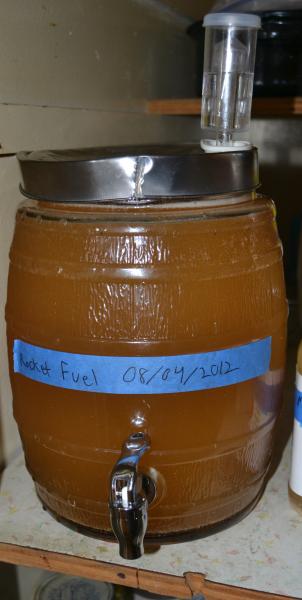forestGeek
Well-Known Member
My LHBS has 1-gallon carboys so I have a couple of those. I also use one for bottling, the auto syphon stays upright and I can see when I'm getting near the end.
I recently found these barrel jars at a local store for around $20.00 and I think I'll get a 2-1/2 gallon for bigger batches. The top could easily be drilled for a fermentation lock. Here's an example of one...
http://www.amazon.com/dp/B000M9NMJA/ref=asc_df_B000M9NMJA2195142?tag=thefind0103633-20&creative=395261&creativeASIN=B000M9NMJA&linkCode=asn
I recently found these barrel jars at a local store for around $20.00 and I think I'll get a 2-1/2 gallon for bigger batches. The top could easily be drilled for a fermentation lock. Here's an example of one...
http://www.amazon.com/dp/B000M9NMJA/ref=asc_df_B000M9NMJA2195142?tag=thefind0103633-20&creative=395261&creativeASIN=B000M9NMJA&linkCode=asn






![Craft A Brew - Safale BE-256 Yeast - Fermentis - Belgian Ale Dry Yeast - For Belgian & Strong Ales - Ingredients for Home Brewing - Beer Making Supplies - [3 Pack]](https://m.media-amazon.com/images/I/51bcKEwQmWL._SL500_.jpg)

































